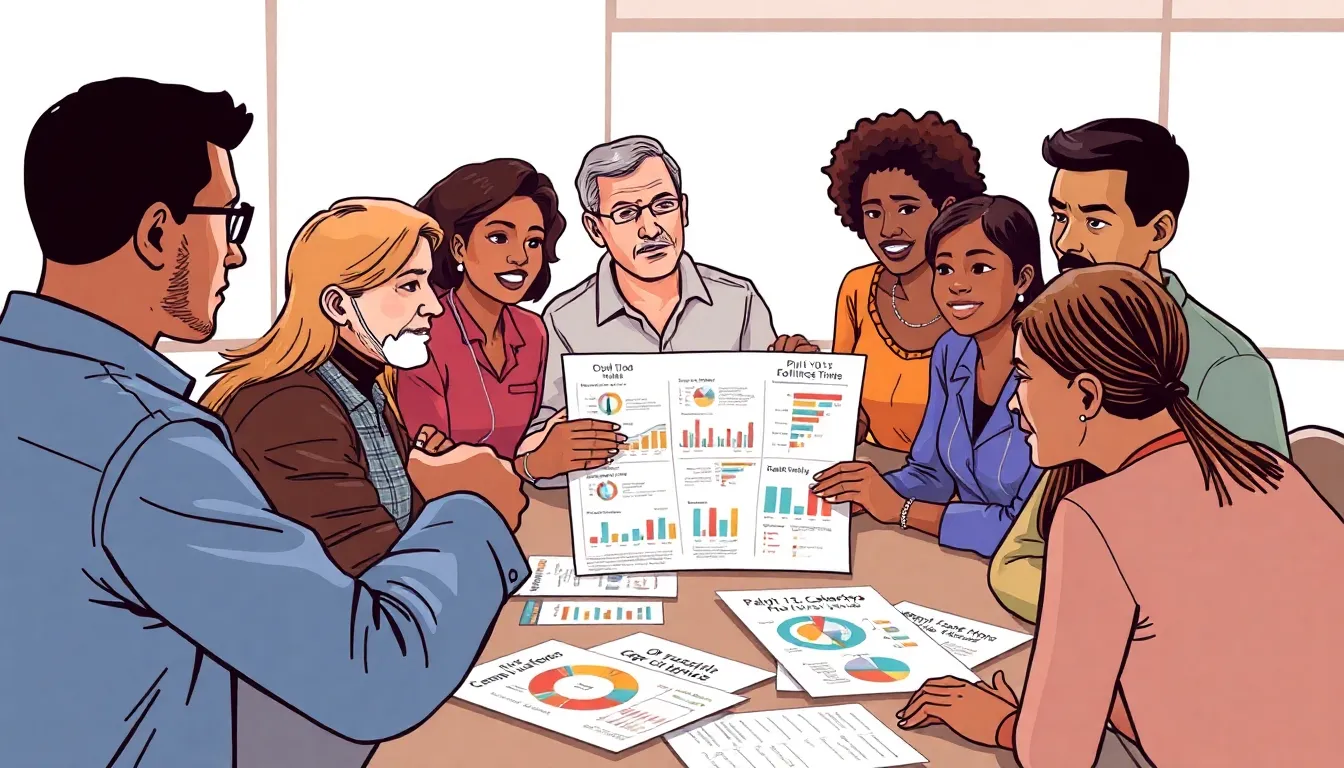In a world where politics often feels like a game of chess played by hyperactive squirrels, understanding the term “political impact” becomes essential. It’s not just about who won the latest election or which policy is trending on social media. Political impact dives deeper, revealing how decisions ripple through society, shaping lives, economies, and even the next viral meme.
Imagine if every political move was a stone tossed into a pond. The ripples spread far and wide, affecting everything from local communities to global relations. Grasping the definition of political impact helps one navigate this chaotic landscape with clarity and purpose. So buckle up and get ready to unravel the nuances of how politics plays a starring role in the drama of everyday life.
Table of Contents
ToggleUnderstanding Political Impact
Political impact refers to the consequences and influences that political decisions exert on society and the global landscape. This encompasses a range of outcomes, extending from legislative changes to societal shifts.
Definition of Political Impact
Political impact is the effect that political actions, policies, and decisions have on individuals, communities, and nations. Changes in leadership can lead to different priorities or legislative frameworks. Public policies often shape economic environments or social behaviors. Additionally, international relations are affected through treaties or diplomatic agreements, creating ripple effects worldwide.
Importance of Political Impact in Society
Political impact plays a crucial role in shaping societal norms and values. Communities frequently experience changes in resources allocation, driven by political decisions.
Policy changes can enhance educational access or healthcare availability, directly influencing quality of life. Economic stability and growth often rely on effective political governance, fostering job creation and innovation. Moreover, political movements can inspire civic engagement, encouraging individuals to take active roles in shaping their communities. Understanding these dynamics equips citizens to navigate the political landscape effectively, promoting informed decision-making and participation.
Factors Influencing Political Impact

Various elements shape political impact. These factors include economic, social, and environmental aspects.
Economic Factors
Economic conditions play a vital role in shaping political impact. Fluctuations in unemployment rates typically influence public sentiment and policy priorities. Changes in tax policies affect personal income and business investments. Inflation impacts consumer spending and can shift voters’ opinions. Additionally, government spending on infrastructure affects job creation and economic growth. Political decisions regarding trade agreements also reflect on local economies and international relations.
Social Factors
Social dynamics significantly influence political impact. Public opinions often guide policymakers in addressing pressing societal issues. Issues such as education, healthcare, and social justice are at the forefront of political discussions. Cultural values shape political agendas, determining which policies gain traction. Civic engagement encourages community participation and influences elections. Furthermore, social movements can mobilize citizens, leading to substantial changes in policies and priorities.
Environmental Factors
Environmental considerations increasingly affect political impact. Climate change prompts urgent discussions about energy policies and sustainability practices. Natural disasters can shift political focus towards emergency preparedness and disaster relief. Regulatory measures targeting pollution and conservation foster political debates around environmental protection. Growing awareness of ecological issues influences voter preferences and demands for responsible governance. Political responses to environmental challenges can transform national and global policies.
Political Impact in Various Contexts
Political impact manifests differently within various contexts, influencing local, national, and global landscapes uniquely.
Local Level Impact
Local policies shape community dynamics significantly. Regulations on zoning and land use affect housing developments, which in turn influence population growth and economic activities. Community engagement in decision-making fosters civic pride and encourages residents to participate in local governance. Local governments often respond to pressing issues like public safety and education, directly affecting residents’ quality of life. For instance, initiatives promoting public transportation can enhance access to job opportunities, thereby boosting local economies.
National Level Impact
National political decisions create widespread consequences. Legislative actions, such as healthcare reforms, directly affect citizens’ welfare and access to essential services. Changes in tax policies can reshape economic structures, influencing individual incomes and corporate investments. Political stability or turmoil often dictates national security and international relations. For example, new trade agreements can enhance economic growth, while changes in immigration policies can shift labor markets. Public sentiment around these issues frequently guides electoral outcomes, reflecting the politics’ robust impact.
Global Level Impact
Global political decisions shape international relations and global economics. Treaties and agreements concerning climate change set frameworks for collective action, impacting environmental sustainability. Geopolitical tensions can drive economic sanctions, disrupting global supply chains and altering trade dynamics. The spread of democratic ideals influences governmental structures worldwide, prompting movements toward reform or civil resistance. Additionally, international cooperation on health initiatives, like the response to pandemics, illustrates political impact across borders, emphasizing the interconnectedness of nations in addressing global challenges.
Measuring Political Impact
Measuring political impact involves both qualitative and quantitative methods to assess the effects of political decisions on society. Different approaches provide valuable insights into how policies affect communities, economies, and cultures.
Qualitative Methods
Qualitative methods focus on gathering in-depth insights through interviews, focus groups, and case studies. These methods capture personal experiences and perceptions, reflecting the nuanced ways political decisions influence individuals and communities. Engaging with citizens through interviews allows researchers to understand emotional responses to policies, facilitating a deeper grasp of societal impacts. Analyzing case studies offers examples of successful or ineffective political actions, highlighting lessons learned from various experiences. Researchers often utilize content analysis of media coverage to evaluate how public narratives shape political perceptions, further enriching the understanding of political impact.
Quantitative Methods
Quantitative methods provide statistical data to measure political impact on a broader scale. Surveys and polls collect structured responses from diverse populations, quantifying opinions on specific policies or political figures. Researchers analyze demographic data to determine how various groups perceive political decisions, offering insights into voting behavior and public sentiment. Using econometric analyses, they assess the relationship between political actions and measurable outcomes, such as economic growth or educational attainment. Trend analyses reveal shifts in public opinion over time, helping policymakers and researchers gauge the effectiveness of specific initiatives.
Understanding political impact is crucial for grasping how decisions resonate within society. The intricate web of influences stemming from political actions shapes everything from community dynamics to global relations. By recognizing the factors that contribute to political impact, individuals can engage more meaningfully in discussions and decisions that affect their lives.
Political impact isn’t just about policies or elections; it’s about the broader implications of those decisions on everyday life. As civic engagement grows and social movements evolve, the importance of political impact will continue to resonate, prompting active participation in shaping a better future for all.



